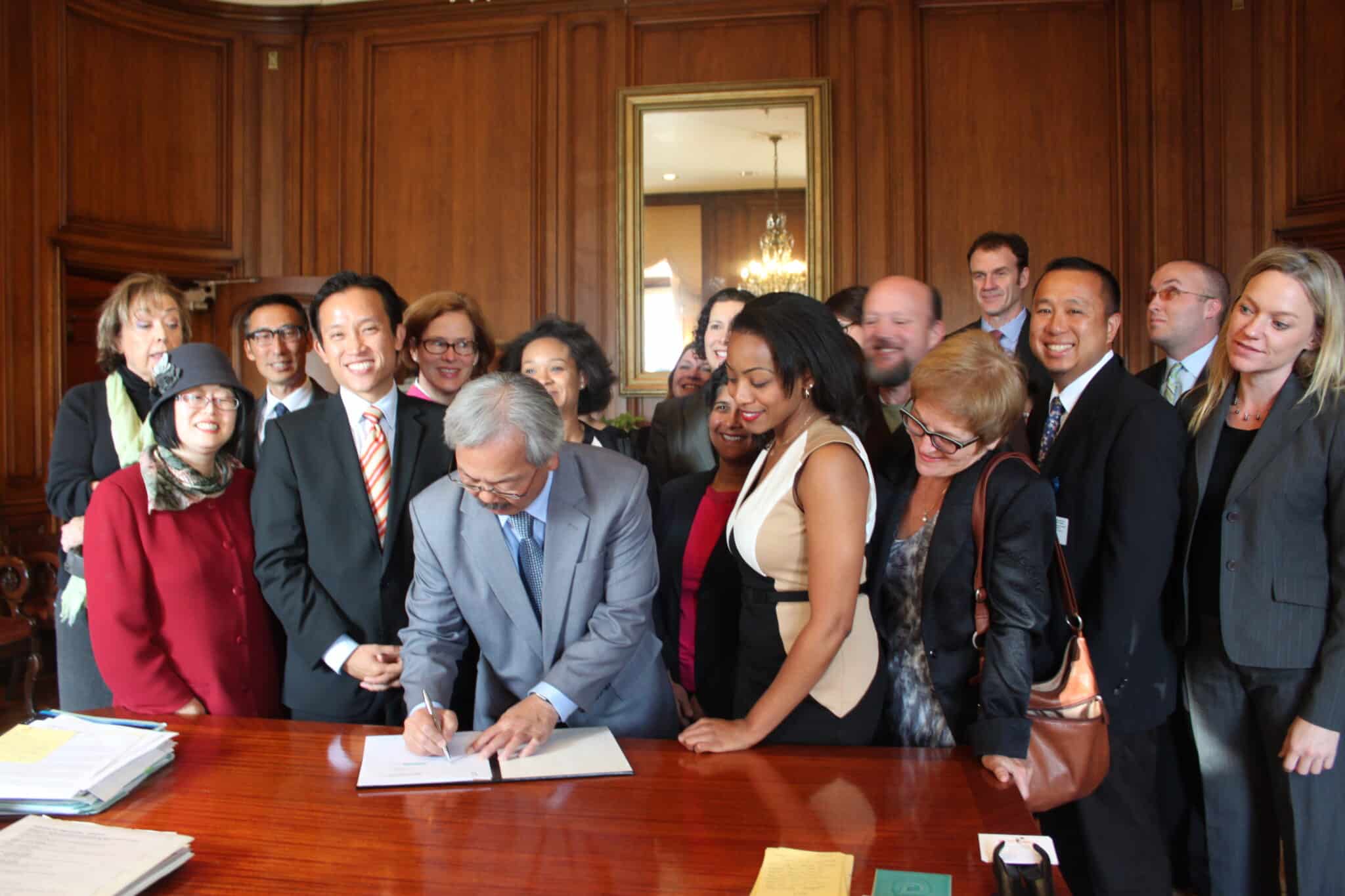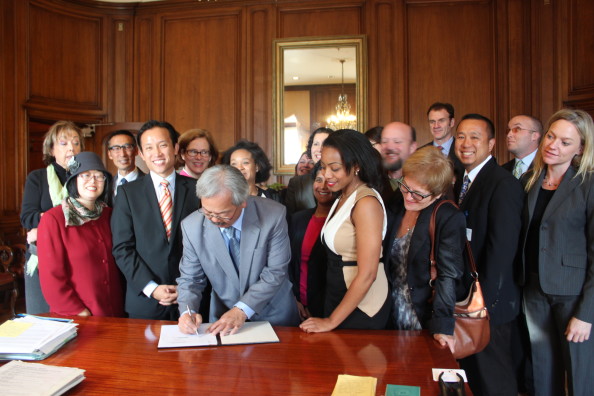San Francisco Mayor Signs Historic Workplace Flexibility Law

by Jenya Cassidy
San Francisco, a city of firsts, just became the first municipality in the country to pass a law providing working parents and caregivers the “right to request” flexible or predictable work schedules.
In a celebratory ceremony with community allies at San Francisco City Hall on Wednesday, Mayor Ed Lee signed the Family Friendly Workplace Ordinance (FFWO) into law. With the passage of this law, workers in San Francisco will have the right to request changes to their work schedules so that they may take care of family members. In addition, the new measure, sponsored by Board of Supervisors President David Chiu, prohibits discrimination against workers on the basis of their caregiver status, and bars employers from retaliating against employees who request a flexible work arrangement.
Members of the community and the California Work & Family Coalition, who mobilized in support of the ordinance, see the need for laws like these every day. Low-wage workers often fear retaliation from their employers for asking for small changes that may make it possible for a father to pick up his child from childcare before it closes, for example. The Family Friendly Workplace Ordinance will help protect employees who request flexibility and encourage employers to work with them to find solutions.
The Fragile Families and Child Well-being Study, shows that flexible work schedules have a direct impact on children and families’ health. According to the study, the stress parents experience due to inflexible work schedules and the inability to deal with child care problems during working hours has a negative impact on children’s and household health. Also, parents without flexible schedules have a harder time taking their children to the doctor for well or sick child visits.
The Family Friendly Workplace Ordinance will benefit workers across the economic spectrum – low-wage and higher-wage workers alike struggle to balance caregiving with work responsibilities. However, low-wage workers often face challenges due to unpredictable schedules, making it difficult to plan, care for family, and keep a necessary second job. In response to this problem, Supervisor Chiu is announcing plans to start a “Predictable Scheduling Task Force” which will engage unions, worker centers, businesses and work family advocates in the hope of identifying politically feasible ways to promote flexible solutions for hourly workers. Hourly workers often find out on a week-to-week basis what their work schedules are – a major difficulty for any parent who has to plan childcare or wants to participate in school activities.
While San Francisco is the first city in the United States to enact a “right to request” law, earlier this summer, the state of Vermont passed similar legislation. And “right to request” laws have been enacted in other countries, including the United Kingdom, Australia and New Zealand. Research has shown the success of these laws from the perspectives of both employers and employees. Hopefully, this is a new trend and we will see more flexible workplaces across the country.
This blog originally appeared on The Next Generation website.
